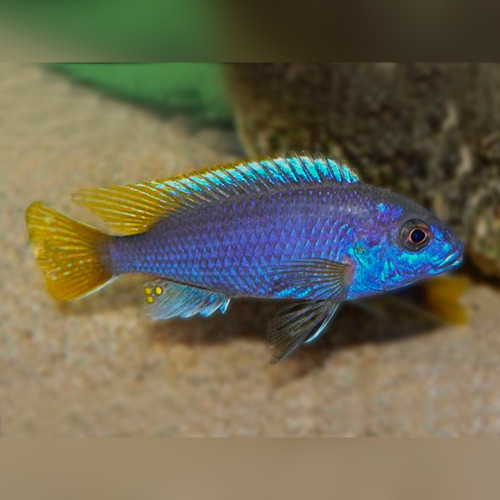Our Guide To Keeping Assorted Mbuna Cichlids
-
About Fish Species:
- Scientific name: Various species from genera such as Pseudotropheus, Labidochromis, Melanochromis, and others
- Common name: Assorted Mbuna Cichlids
- Family: Cichlidae
- Origin: Lake Malawi, Africa
- Adult length: 8 to 15 cm (3 to 6 inches), depending on the species
- Lifespan: 5 to 10 years
-
Tank Setup:
- Tank size: A minimum of 200L (50 gallons) is recommended for a community of assorted Mbuna Cichlids.
- Environment: Decorate the tank with numerous rocks, caves, and crevices to create territories and mimic their natural rocky habitat.
- Substrate: Sand or fine gravel is ideal for replicating their natural lake bed.
- Lighting: Moderate lighting to highlight their vibrant colors.
-
Water Parameters:
- pH: 7.8 to 8.6
- Water hardness: 10 to 20 dGH
- Temperature: 24 to 28°C (75 to 82°F)
-
Filtration and Water Flow:
- Strong filtration is required to handle the waste produced by Mbuna Cichlids.
- A moderate to strong water flow is beneficial to simulate the currents of Lake Malawi.
-
Diet:
- Primarily herbivorous, assorted Mbuna Cichlids thrive on a plant-based diet.
- Feed them spirulina flakes, high-quality vegetable-based cichlid pellets, and occasional blanched vegetables like zucchini or spinach.
- Avoid protein-heavy foods like bloodworms to prevent health issues.
-
Tank mates:
- Compatible with other Mbuna Cichlid species that share similar aggression levels and dietary needs.
- Avoid mixing them with non-Malawi cichlids or peaceful community fish.
- Maintain a higher female-to-male ratio to minimize aggression.
-
Behavior and Compatibility:
- Mbuna Cichlids are territorial and can be aggressive, particularly males defending their territories.
- To reduce aggression, provide plenty of hiding spots and overstock the tank slightly to spread territorial disputes.
- Regular tank maintenance and a stable environment are crucial for their health and compatibility.







